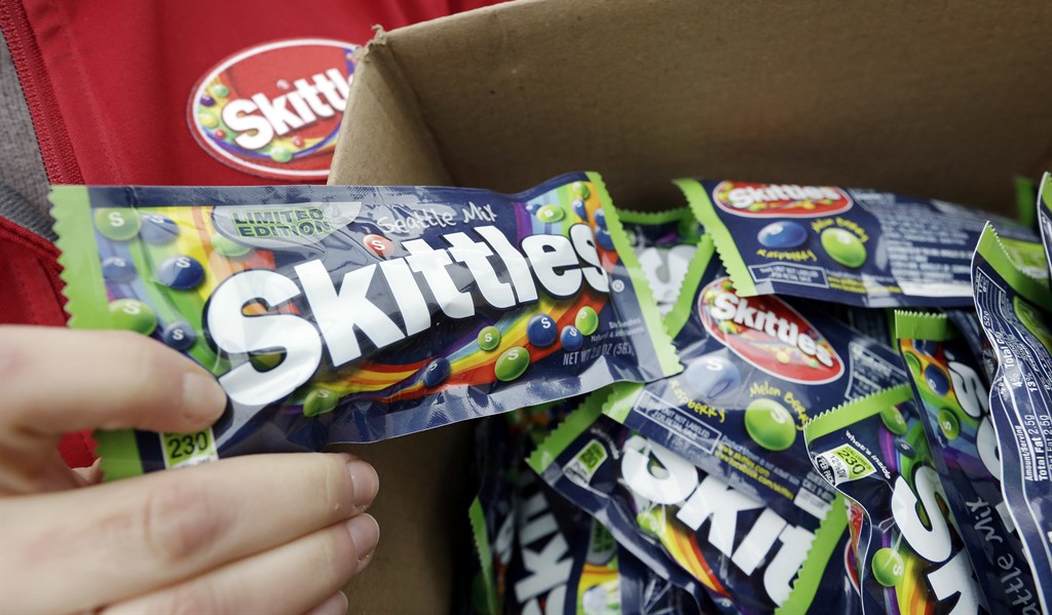Bad news for Californians who enjoy Skittles and Sour Patch Kids. Your favorite guilty pleasure may be banned in California. Same for Campbell’s Soup. Say it isn’t so!
It’s all about a radical new crackdown on food with cancer-linked additives. If a new law is passed by legislators, the move will make a national change to food recipes. The California law zeroes in on five common food additives linked to cancer, DNA, and organ damage.
Assemblyman Jesse Gabriel, who represents part of Los Angeles, filed AB418 last month. Three of the five food additives, brominated vegetable oil, potassium bromate, and titanium dioxide are banned in the EU. One, the dye Red 3, is banned from use in cosmetic products in America. The fifth additive is propylparaben.
Food that includes the additives will not be allowed to be sold in California if the bill becomes law, or companies will have to change the product formulas. Other products that could be affected are sauces made by Old El Paso, jelly beans, PEZ candy, Trident sugar-free gum, and some smaller bread brands in America.
‘Californians shouldn’t have to worry that the food they buy in their neighborhood grocery store might be full of dangerous additives or toxic chemicals,’ Asm Gabriel said in a statement.
‘This bill will correct for a concerning lack of federal oversight and help protect our kids, public health, and the safety of our food supply.’
Asm Gabriel told DailyMail.com ‘the goal of the bill is to protect kids and their parents from harmful chemicals.’
This new regulation would have a nationwide effect. It is highly unlikely that companies would use one formula in California and another in other states. Of the five additives, titanium dioxide has a little history here.
The additive was at the center of a 2022 lawsuit filed in the Golden State last year alleging the popular candy Skittles were not fit to be eaten.
The naturally occurring powder is used to prevent goods from caking and is often used as coloring.
It has been approved as an additive by the Food and Drug Administration (FDA), though activists want the agency to revisit the 1966 decision.
The calls for the additive to be banned come as increased research shows the potential dangers of the foods.
A German review published in 2015 found titanium dioxide could accumulate in a person’s bloodstream, kidney, liver, and spleen. French research results published in 2017 found build-up could put people at risk o intestinal inflammation, immune system damage, and cancer. This additive was banned from food products in the EU last year. Skittles maker, Mars, was forced to use different flavorings and dyes in some European countries. Now the rainbow tastes a little different.
‘ Why are these toxic chemicals in our food?’ Susan Little, from the consumer advocacy organization Environment Working Group, said.
‘We know they are harmful and that children are likely eating more of these chemicals than adults. It makes no sense that the same products food manufacturers sell in California are sold in the EU but without these toxic chemicals.’
Red 3, a food dye, has been controversial for years. It is found in many candies and other sweets.
Since the early 1980s, studies have shown the additive can cause cancer in laboratory animals in very high doses and has been linked to behavioral issues in children.
It was banned in cosmetic products in 1990 for these reasons but remains in many food and sweets, including pastries and breakfast cereals.
A pair of 2016 studies found Red 3 is in more than one in 10 candies in the US, and more than 80 percent of children under two had consumed it in the past two weeks.
The Center for Science in the Public Interest (CSPI), a Washington DC-based consumer advocacy group, led a petition to the FDA to ban the chemical last year.
It makes for an interesting discussion. A state that suddenly goes it alone and bans food products and beverages due to additives used to make the products puts a burden on the manufacturers to change the product formula. It wouldn’t be financially feasible to have one formula for California and one for other states. Companies wouldn’t want to lose the California market, the most populous state in the country. Does changing the formula alter the taste of the product? If so, that would affect sales. It’s not as easy as just telling companies to stop using the additives. It sets off a whole chain of reactions when that happens if it does.
We’ll have to wait and see if the resolution becomes law in California. If so, then companies have some decisions to make.








Join the conversation as a VIP Member